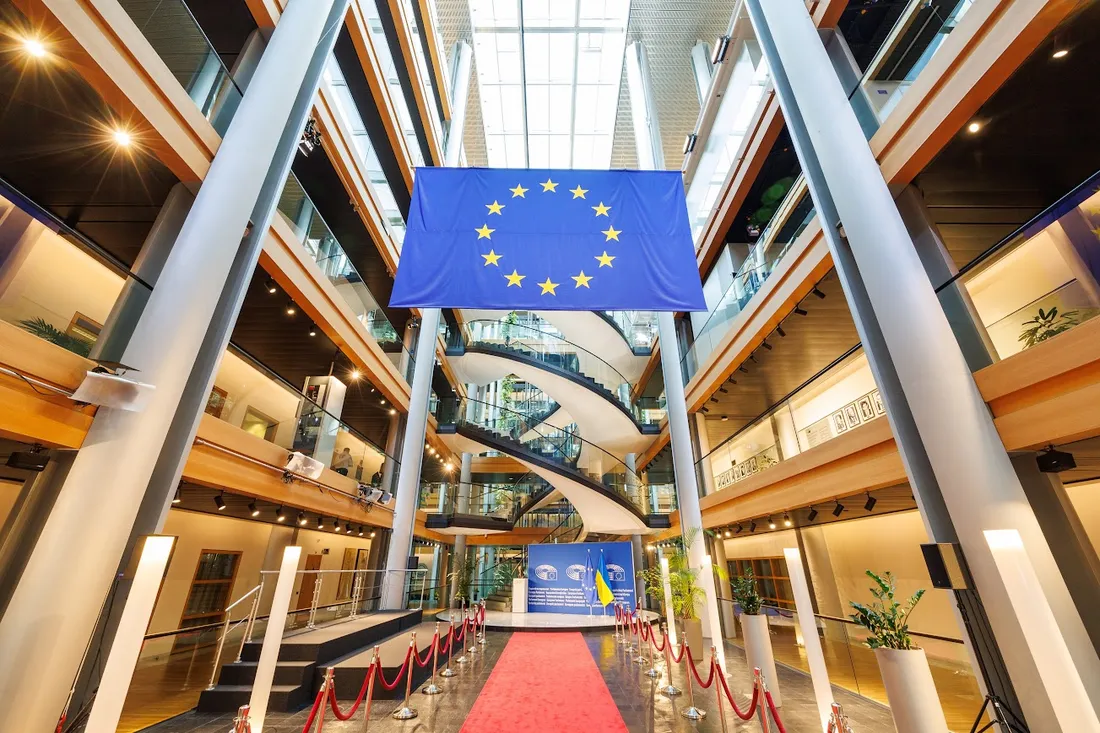
These are some of the key figures concerning the 2025 European budget proposal presented today by the European Commission, which comes three months after the guidelines from Ecofin and the European Parliament that outline the political direction for the European Commission's legislative proposal on the matter.
The largest share of resources goes as usual to the Common Agricultural Policy (CAP), followed by funds for regional development and cohesion.
What does the 2025 European budget entail?
Delving into the details of the EU budget proposal for 2025 presented by the Commission, it is important to first note that it includes spending covered by appropriations within the long-term budget ceilings, funded by own resources. Added to these are expenditures under NextGenerationEU, financed through capital market borrowing.
For the "base" budget, the budget draft proposes two amounts for each program: commitments (i.e., the funding that can be agreed upon in contracts in a given year) and payments (i.e., the money actually disbursed).
With that clarified, here is how the still-in-office European Commission plans to distribute the €199.7 billion foreseen in the 2025 budget draft.
As already mentioned, the primary sector receives the largest share of resources. For 2025, an allocation of a whopping €53.8 billion has been foreseen for the CAP and €900 million for the European Maritime, Fisheries and Aquaculture Fund. Resources aimed at European farmers and fishermen, but also to strengthen the resilience of the agri-food and fisheries sectors and to provide the necessary margin for crisis management.
Another €49.2 billion goes to regional development and cohesion to support economic, social, and territorial cohesion, as well as infrastructure to support the green transition and Union priority projects.
As for the external projection of the EU, the 2025 budget foresees €16.3 billion to support partners and European interests around the world, including, among others:
- €10.9 billion under the Neighborhood, Development and International Cooperation Instrument — Global Europe (NDICI — Global Europe),
- €2.2 billion for the Instrument for Pre-accession Assistance (IPA III)
- €0.5 billion for the Western Balkans Growth Facility,
- €1.9 billion for Humanitarian Aid (HUMA).
An additional €4.3 billion will be available for the grants foreseen under the Ukraine Facility, supplemented by €10.9 billion in loans.
Research and innovation collectively take home €13.5 billion. Of these, the largest share (€12.7 billion) is allocated to Horizon Europe, the Union's flagship research program. The budget draft also includes funding for the European Chips Act under Horizon Europe and through redistribution from other programs.
For strategic investments, €4.6 billion are foreseen, divided into several strands. For example, €2.8 billion are allocated to the Connecting Europe Facility to improve cross-border infrastructure, €1.1 billion for the Digital Europe program, and €378 million for InvestEU for key priorities (research and innovation, dual green and digital transition, healthcare, and strategic technologies).
The portfolio dedicated to space is also substantial. We are talking about €2.1 billion, mainly for the European Space Program, which will bring together the Union's action in this strategic field.
To these are added €196 million for secure satellite connections under the new Union's secure connectivity program.
Significant also is the budget dedicated to the “defense” chapter for which €1.8 billion are allocated, of which €1.4 billion to support capacity development and research under the European Defense Fund (EDF) and €244.5 million to support military mobility.
The budget for defense is then supplemented by another €784 million allocated instead for security, of which in particular €334 million for the Internal Security Fund (ISF), which will combat terrorism, radicalization, organized crime, and cybercrime.
In presenting the 2025 budget, the Commission also groups a series of appropriations under the heading “resilience and values”. These amount to €11.8 billion divided among several spending items such as Erasmus+ (€4 billion). But the pot also includes €5.2 billion for the rising borrowing costs for NGEU, €352 million to support artists and creators across Europe, and €235 million to promote justice, rights, and values.
For environment and climate action, the 2025 budget allocates €2.4 billion, including:
- €771 million for the LIFE program to support mitigation and adaptation to climate change,
- €1.5 billion for the Just Transition Fund to ensure that the green transition works for everyone.
Another €2.7 billion are instead allocated to the protection of European borders, of which mainly €1.4 billion for the Integrated Border Management Fund (IBMF) and €997 million (total EU contribution) for the European Border and Coast Guard Agency (Frontex).
To these are then added €2.1 billion for spending related to migration within the EU, of which €1.9 billion to support migrants and asylum seekers.
To ensure the functioning of the single market, the 2025 budget provides instead €977 million, of which €613 million allocated to the Single Market Program and €205 million for work on anti-fraud, taxation, and customs.
Finally, the allocation foreseen for EU4Health amounts to €583 million to ensure a comprehensive health response to people's needs, and €203 million instead allocated to the Union Civil Protection Mechanism (rescEU) to rapidly deploy operational assistance in case of crisis.
All amounts are in current prices.
The one presented today by the Commission is only a proposal for the EU Budget for 2025. The final version of the annual budget for 2025 will indeed be formally adopted by the budgetary authority before the end of the year.






